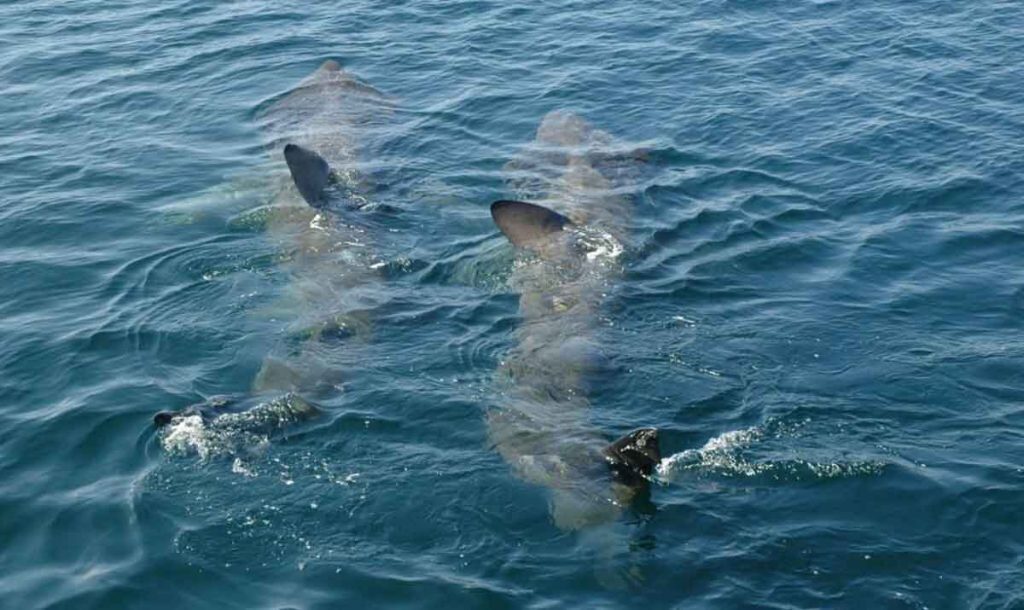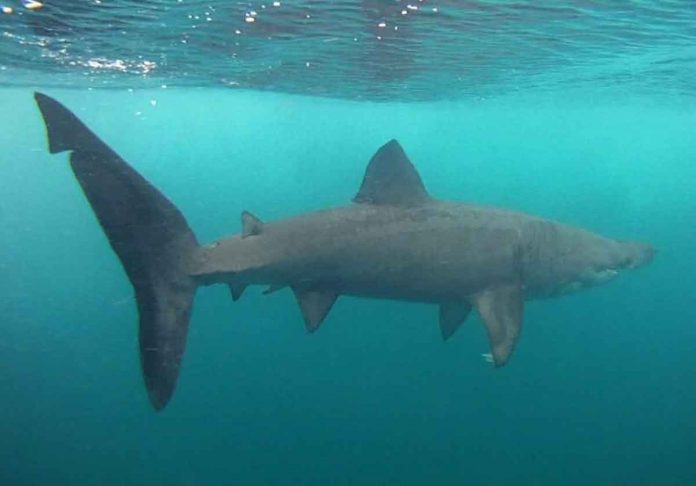Scientists said if basking sharks were like Canadians, their migration habits might be easily explained. They head to south to avoid winter’s chill and north again to enjoy summer’s warmth.
But basking sharks are a more complex puzzle. Biologists discovered this while examining the seasonal movements of the enormous fish.
Scientists tracked four basking sharks. They were so large that they can reach the size of a school bus.
Scientists affixed tags which will record the sharks’ location, water temperature and depth.
But two of the four sharks surprised the scientists. The other two sharks migrated south to tropical and subtropical waters off the African coast.
But the two sharks lounged in warm waters there. They spent much of their time in water that was deeper and colder than they’d stayed nearer to Ireland.
The sharks would dive to depths of 200 to 700 meters. Each morning. They return near the surface near midday. They submerge to the chilly depths in the evening. The sharks put themselves through an extreme range of water temperatures, during their dive cycle. It was 27 C near the surface and a frigid 7 C in the depths.

The sharks remained in shallower waters near Ireland’s coast experienced neither extreme cold nor warmth. The winter water temperatures ranged from 9 C to 17 C.
The stay-at-home sharks showed little variation in depth. In the time of the six months the four animals were tracked.
The study has been published in the journal Environmental Biology of Fishes.
Scientists do not have the answer why two lingered and the other two swam south.
These findings are a reminder that research into ocean habitats and sea animals’ habits should include depth.
The conservation of deep-ocean habitats is essential to the creatures’ survival. Basking sharks are the second-largest fish in the ocean. They use their enormous mouths and gill-rakers to filter-feed tiny organisms. They are a vulnerable species globally. They are an endangered species off the Pacific coast.

